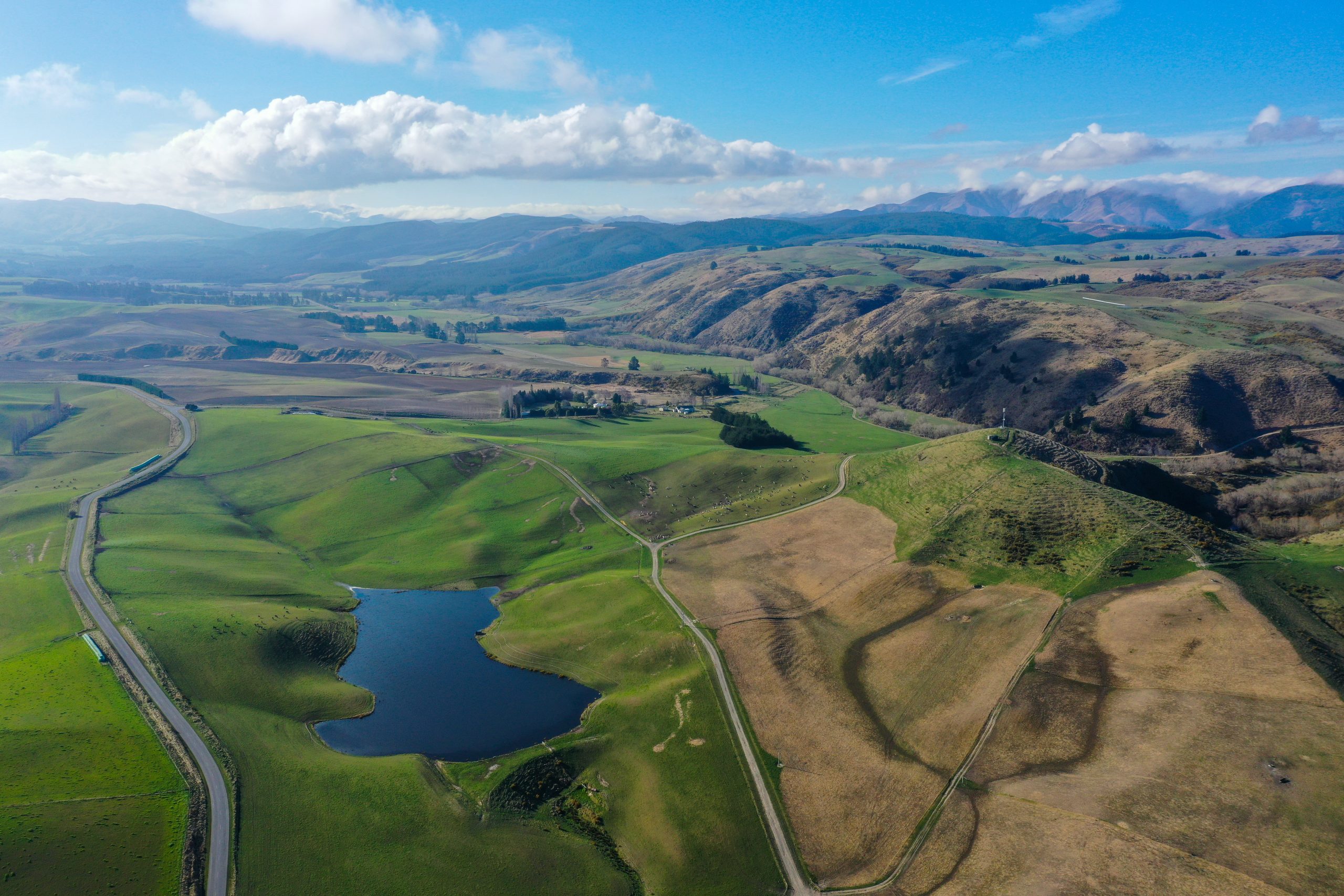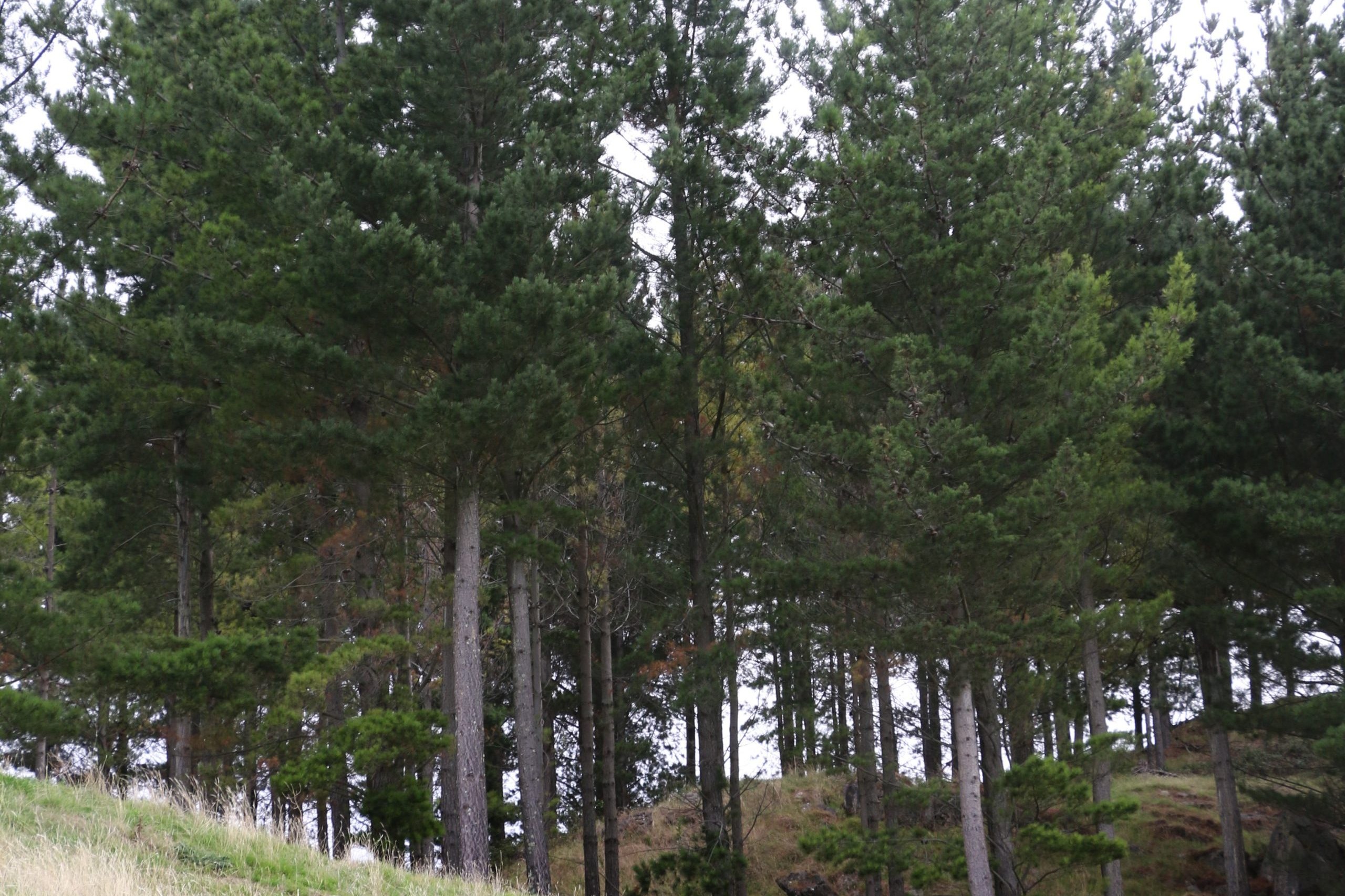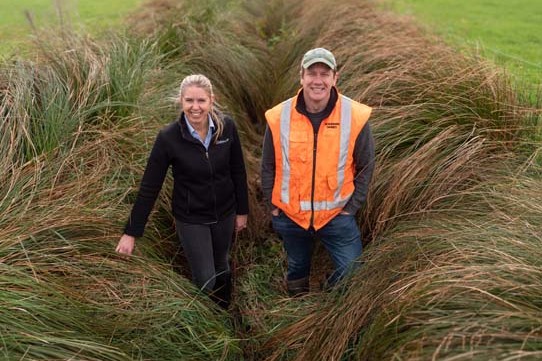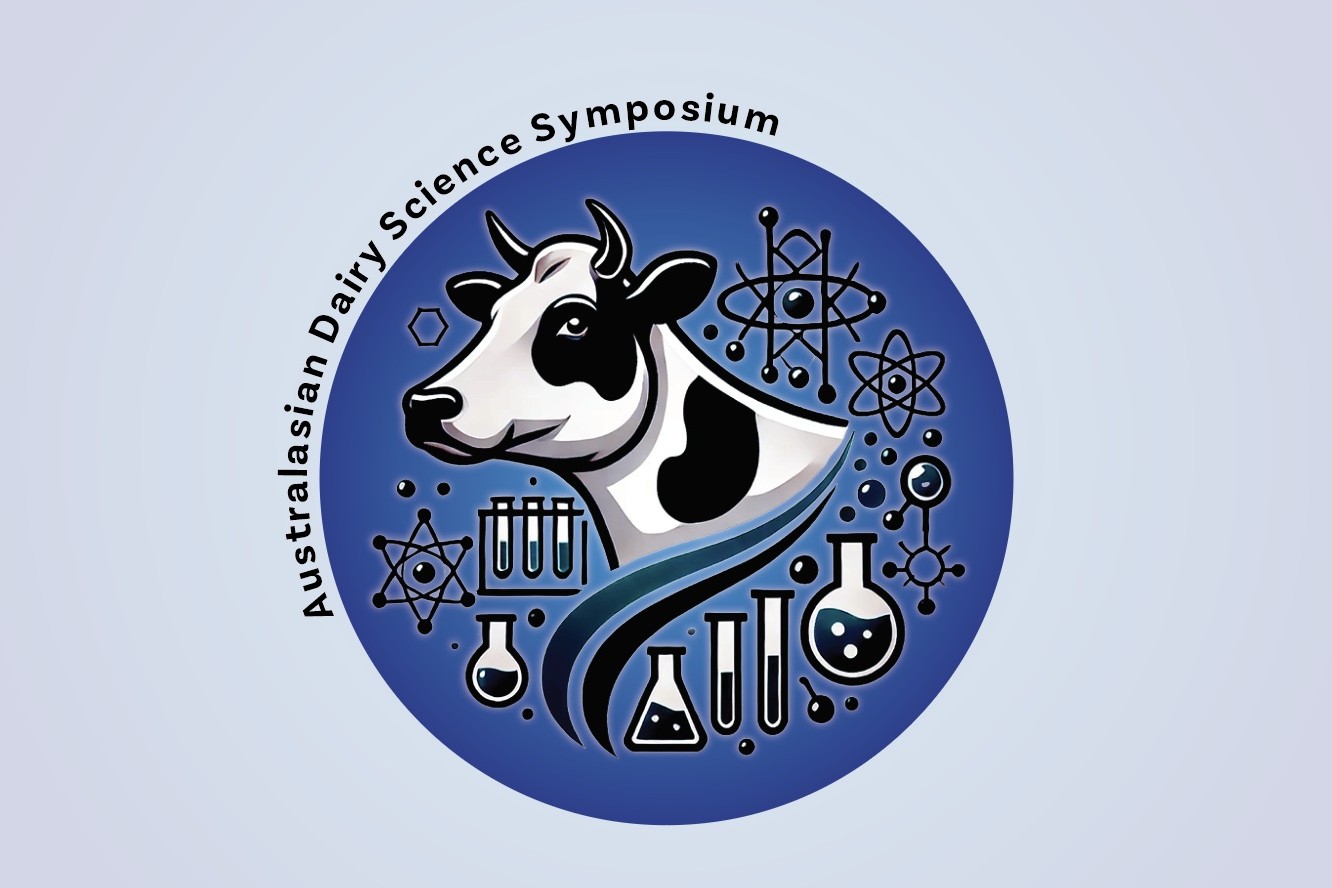Investing in animal health, social responsibility, milk quality and the environment has paid off for a Canterbury farming family. Anne Lee reports.
There’s no getting around it – achieving Lead with Pride certification takes a lot of work but it’s an effort a Canterbury farming family says is worth it and that’s not solely because of the extra payment they receive.
Rick and Diana Bourke, along with their daughter Sara Russell and her husband Stuart, achieved Synlait’s Lead with Pride Gold Elite certification for their Longbeach farm back in 2017.
Sara and Stuart are 50/50 sharemilkers for Rick and Diana on the 730-cow farm Sara’s parents converted in 2007, originally supplying Fonterra but switching to Synlait in 2016.
Lead with Pride had been launched by the company in 2013 and, while it wasn’t compulsory for new suppliers as it is now and the incentive payments were less than half of what’s available now, the family could see its benefits.
“We worked on the Lead with Pride certification before the start of the season so I think we only had one pick up in spring of that first season before we were certified Lead with Pride Gold,” Sara says.
They were among some of the first farms to achieve the standard and Sara says they got a huge amount of support from the company.
It was a novel concept but one they saw could not only give them a premium on their milk price but also help them set up systems and identify some wins in terms of efficiency.
It meant writing standard operating procedures (SOP’s) for activities within Lead with Pride’s four pillars – animal health and welfare, social responsibility, milk quality and environment.
“That took quite a lot of work but it does make you talk about exactly what you do and why and there were a few things where we changed what we were doing,” she says.
Within the pillars there are numerous standards and expectations but Sara says none of them were too onerous or didn’t seem to have a good reason.
Through the season they looked at what going the extra mile meant in terms of requirements to reach the next standard and decided it was worth the effort.
“Again, it was very early on and we got a lot of support from the Synlait team so by the end of the next season we were certified Gold Elite,” she says.
Rick says that while much of the paperwork has been done by Sara and Stuart, there has been a capital cost in improving infrastructure and technology. However, the investments have made sense financially in terms of the improvements in efficiency. Profit and efficiency are high on the priority list but it’s clear that so are animal health and welfare and environmental performance.
Environmental pillar
When they made the move to Canterbury, Rick saw risks coming for those using high rates of nitrogen. He’d taken note of regulations that were being imposed in dairy farming regions around the world such as the Netherlands.
“Sara and Stuart had worked in Ireland for a while too and they had seen what was happening there.
“We probably missed out on some income along the way because it meant we didn’t maximise production but the system we run is more sustainable in the longer term,” he says.
They’re currently only applying 70kg N/ha across the whole farm, dissolving urea in solution and spraying it on when they need to boost growth and know they can get a high response rate.
Their Overseer nitrogen loss number is 28kg N/ha/year.
The farm has five pivot irrigators with three of them fitted with variable rate irrigation (VRI).
The farm has been electromagnetically (EM) mapped to identify the different soil types within the farm and allow specific irrigation programmes to be set so that each area gets the right amount of water. It not only saves water it also means less likelihood of drainage down the soil profile minimising nutrient loss into aquifers and underground water supplies.
Soil probes within the different zones measure soil moisture so it can be monitored closely every day.
Greenhouse gas
This year Synlait has further developed its greenhouse gas loss mitigation programme providing farmers with a framework and multiple actions they can take with each action allocated points.
Under the proposed plan, once they tally the points for completed actions, they receive an incentive payment of up to 3c/kg MS depending on how many points they have. Sara says they are already doing some of the actions such as actively managing irrigation using soil moisture probes and VRI but they’re also investigating other actions such as using solar energy to power pumps on irrigation wells.
“Last season Synlait got us thinking about what we could do and we did a self-assessment. It was quite surprising just how many things you can do that have an effect – anything that cuts your nitrogen loss, or lowers your energy use – wrapping your silo, using heat recovery systems.
“We’re already doing those things but it’s good to be aware of how they impact the GHG side of things,” Sara says.
Animal health and welfare
The couple run a Jersey herd with a couple of Guernsey and Brown Swiss that have become a pet project for Sara.
The whole family admits they’re besotted with their cows and it’s clear that the herd and animal health and welfare are a big focus. The Lead with Pride certification process is very much aligned to their own values in that area but Sara says it’s helped them learn more. Measuring and monitoring has been a key factor.
“We body condition score (BCS) four times a year so we can objectively make sure cows are at the target condition at key times.
“We have blood tests from at least 12 calves each season to make sure their immunity levels are high enough and show they’re getting high-quality gold colostrum.
“We record every animal that’s had any kind of lameness issue based on locomotion scoring and we’ve got a written plan to show how we’re trying to minimise bobbies,” Sara says.
They’re currently trying to source sexed Jersey semen – not to produce heifers but to get more bulls.
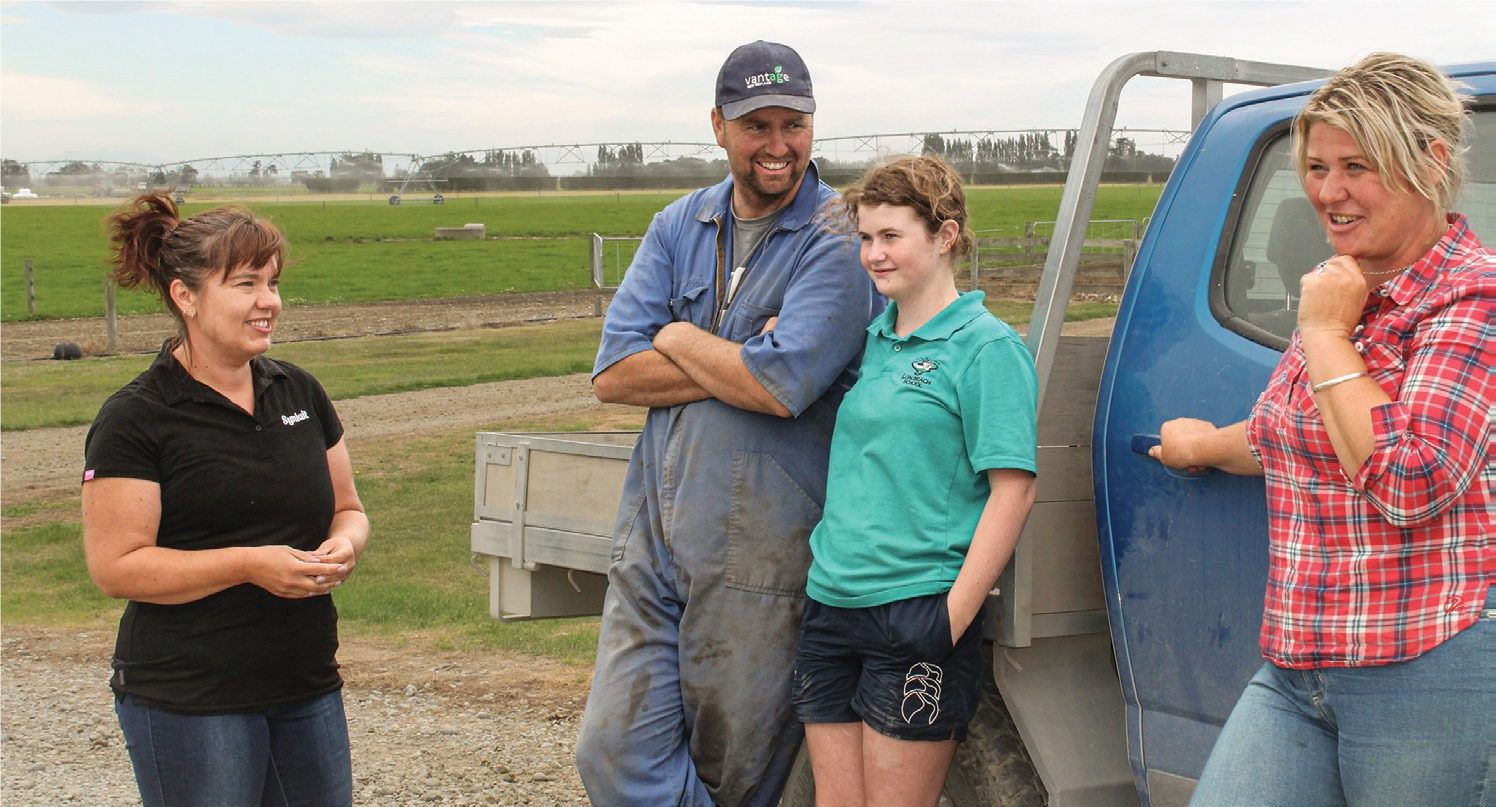
The majority of their Jersey bull calves are sold as Jersey sire bulls to follow up after artificial insemination (AI) and having Jersey male sexed semen to use in their all AI mating programme would go a long way to almost eliminating bobbies in their operation. To achieve Gold Elite status under the milk quality pillar one of several stipulations is cows must achieve a 10-day average bulk somatic cell count (SCC) of 150,000c/ml or less.
The farm achieves that without any problem through attention to detail.
They also have continuous vat and water monitoring through Levno and have installed security cameras to look at the vat and tanker pad as well as the yard and bridge onto the rotary milking platform.
The social responsibility pillar has a major focus on staff and health and safety of people onfarm including contractors.
“It’s important and we do make sure we have systems in place but we only employ one relief milker – we do everything else ourselves,” Sara says.
Rick is active onfarm and Stuart and Sara do most milkings as well as day-to-day herd and grass management.
The 54-bail farm dairy is equipped with Protrack, automatic cup removers (ACR’s), and programmable feed heads on the grain feeding system so milking can be done by one person.
It also has an LIC heat detection camera that’s made the all-AI mating manageable for the small farm team.
Stuart AI’s the cows and this past mating they moved to twice-a-day mating for the first six weeks.
Their six-week in-calf rate, based on the Fertility Focus Report was 81% and the empty rate after 9.5 weeks mating was 8.5%. Being accredited for Lead with Pride isn’t a one-off event and every year AsureQuality auditors visit the farm to check the standards are being adhered to.
Preparing for audits used to be stressful but the development of FarmIQ’s dedicated Lead with Pride programme has helped immensely.
“I used to keep all these bits of paper in a box because I was worried that at some time, I’d need them to prove we’d done something.
“Now we can upload receipts and invoices, photos and screen shots or other documents as evidence and put them in the areas they relate to – it’s all there in one place.
“We can also see what tasks are outstanding so there’s no forgetting something,” Sara says.
The system comes with an app and for bigger farm teams that means every team member can download the app and have tasks required for audit allocated to them.
The app gives alerts and, much like the alert for notifications on any other app, clearly shows if a person has an outstanding task.
Rick is happy to give Lead with Pride the thumbs up and says the incentive payments won’t necessarily be a straight addition to farm profit because there is a cost to meeting the requirements.
“But it does do what it says – it leads you in the right direction and there are win:wins in most of what we do to achieve the standards,” he says.
“And you can be proud of how you’re farming when you’re meeting the standards,” Sara says.
The goal posts do move as expectations from markets, the public and regulators change and over recent weeks Synlait has been talking to its suppliers about new expectations for the coming season.
Rick says there can be a bit of robust conversation during consultation about some changes and this year has been no different.
“The good thing is you can have the discussions and the company listens – it’s a two-way street and you do get heard when we give them feedback on making something more realistic or practical.
“We’re not right at the very front of the pack but we’re at the sharp end and that’s been in part due to the fact they’ve led us that way and I think that all helps when it comes to getting the best price for our milk,” he says.
FARM FACTS
Area: Longbeach
Owners: Rick and Diana Bourke
50/50 sharemilkers: Stuart and Sara Russell
Cows: 730 cows, Jerseys
Cow liveweight: 412kg
Total area: 280ha (youngstock reared onfarm)
Milking platform: 205ha
Production: 500kg MS/cow 412kg LW Jerseys
Supplement: 700kg DM/cow grain, molasses, DDG, silage
Nitrogen: 70kg N/ha


